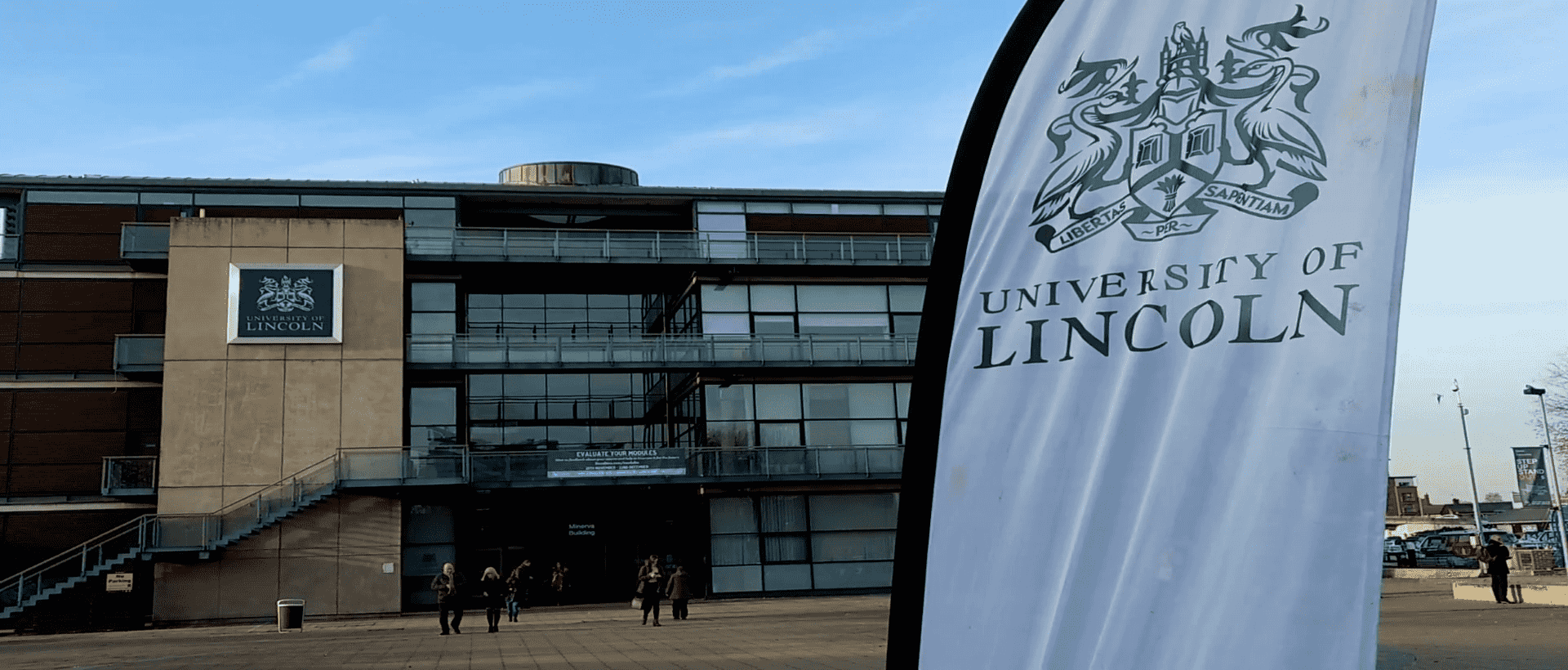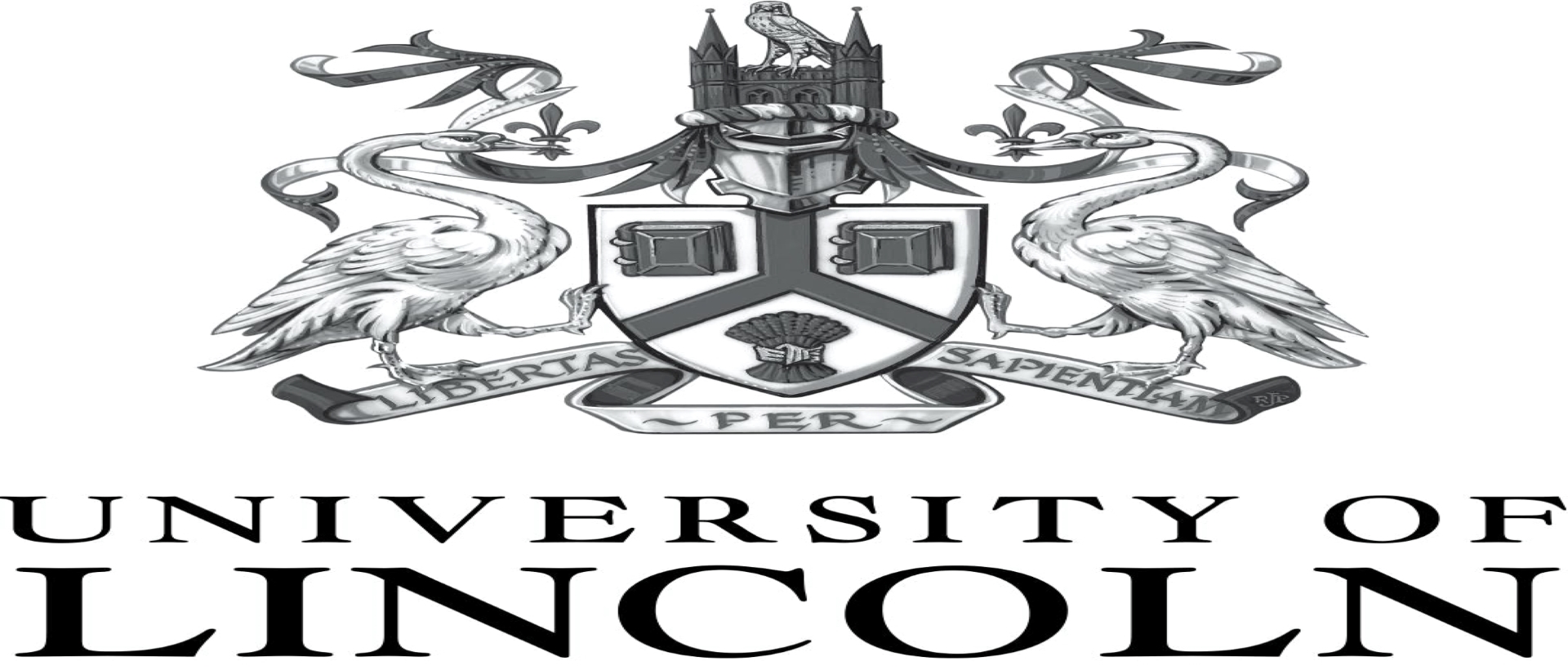
About
The University of Lincoln traces its origins back to 1861, it developed from a number of educational institutions in Hull. In 1992 it attained university status and was named The University of Lincoln and Humberside in 1996. In October 2001 it was renamed to the University of Lincoln with a new campus in Lincoln. Her Majesty Queen Elizabeth II opened the first University of Lincoln building on the Brayford Pool campus. Students studying at the University of Lincoln have the advantage of living in a historic city, the city of Lincoln has remained from its Roman heritage and is also home to a number of historical buildings and landmarks like the Lincoln Cathedral built in 1072 and the Lincoln Castle. It is one of the friendliest and most affordable student cities in the UK. Since the University was opened it has welcomed more than 90,000 students from over 135 countries.
The University of Lincoln follows a structure that is a college-based system, each led by a Pro-Vice-Chancellor.
The University comprises four academic Schools and Colleges:
- College of Arts covers subjects like architecture, design, English, journalism, performing arts, and history.
- College of Science covers subjects like chemistry, computer science, geography, pharmacy, physics, and engineering.
- College of Social Science covers subjects like law, education, psychology, social and political sciences.
- Lincoln International Business School covers subjects like accountancy, finance, tourism, marketing, and economics.
Each College has a number of specialized Schools under it offering a range of undergraduate, postgraduate, and research programs both on-campus and online.
Why Study At The University of Lincoln
- The University of Lincoln was named “Modern University of the Year” in The Times and The Sunday Times Good University Guide 2021.
- The University is a top 50 UK University, ranking 45th out of 135 in the UK in the Times University Guide 2021.
- The University of Lincoln was awarded Gold in the Teaching Excellence Framework(TEF) in 2017.
- The University has great links with innovative and successful industries like Siemens and Santander which gives students excellent learning and career opportunities.
- The presence of students from different parts of the world creates a diverse environment in the University exposing students to new ideas and cultures.
Employment and Career Opportunities
At the University of Lincoln, there is a dedicated Careers and Employability Team of professionals to help students develop the knowledge, skills, confidence, and experience to start their careers. Each School has a career advisor and one-to-one appointments are available for students to explore their career options and gain knowledge, the advisors also help students to create their CVs and prepare for interviews. The University has a vacancy platform “CareerLinc.” Here students can sign up to receive updates on employment, work placement, and job opportunities. The University of Lincoln’s Careers and Employability Team has won the Association of Graduate Careers Advisory Services Award for Excellence in Employer Engagement in 2016. It is also ranked among the Top 20 UK Universities for careers support by Student Hut in 2019. 91% of the University graduates find work within 15 months of completing their course and 70% work in highly skilled employment. Graduates from the University of Lincoln have been successful in securing jobs with major companies and organizations around the world like BBC, Rolls-Royce, Siemens, and Lloyds Bank.
Some notable alumni of the University of Lincoln are:
- Chris Rankin (New Zealand-British Actor)
- Andrea Jenkyns (Member of Parliament of UK)
- Jonathan Foyle (Architectural historian, broadcaster, and advocate for heritage sites)
- Henrik Persson Ekdahl (Swedish Entrepreneur)
- Galina Miklinova (Czech illustrator and director)
Services and Facilities offered
Student Services:
The University of London has a dedicated and professional Student Support team to help students with any enquiry about the University’s systems and procedures, fees and funding, general advice and information. There is also an International Advice Team consisting of experts in student immigration to assist international students on immigration and visa issues. The University of Lincoln also provides part-time work opportunities to its students who wish to earn some extra money or gain work experience.
Accommodation:
The University of Lincoln provides student accommodation either on the Brayford Pool Campus or a short distance away. There are a variety of options for students to choose from to suit their budgets and preference. The University’s Residential Warden Support team consists of students or staff who are recruited and trained to provide a range of services to the students.
Medical Facilities:
The University has a Health Care Centre in case students need to seek medical advice at any time which is located in the campus itself. There is an Urgent help-line number as well as a Critical help-line number which is available 24 hours a day, 365 days a year. The University of Lincoln also provides general well-being, disability and counselling services to its students suffering from any disabilities or mental conditions like anxiety, depression, personality disorder, anger management or any other such conditions.
Sports facilities:
The University of Lincoln has a Sports Centre located on the Brayford Campus which offers a range of facilities and it is the hub of activity to keep students healthy and active. Some of the facilities include fitness suites, sports halls, football pitches, and a dance studio. A wide range of sports are available for students to choose from and students are also given the opportunity to compete in the British Universities and Colleges Sports tournament.
Clubs:
The University of Lincoln has a number of sports clubs, societies and groups for students to get involved in. These provide an excellent way for students to meet like-minded people and make new friends and enjoy their time in the University. There are societies to meet everyone’s tastes and interests and each one organises events and trips which students can be a part of.



